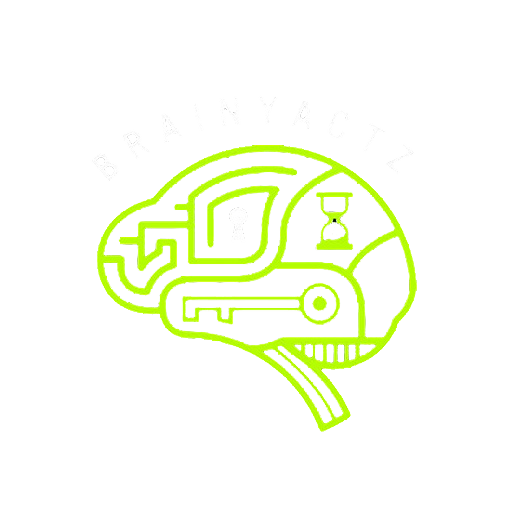High turnover rates can significantly drain a company’s resources. However, an innovative onboarding process could be the solution to keeping new hires engaged in their roles.
Engaging in activities such as assembling puzzles and solving mysteries in escape rooms can offer more than just a fun day out, especially for remote team building. It can lay the foundation for a healthy, collaborative work environment.
From a recruitment perspective, escape rooms offer a unique way to assess critical skills while promoting a sense of camaraderie and shared achievement.
This article will explore how escape room experiences can transform the traditional onboarding process into an adventure that benefits everyone involved.
Key Takeaways
- Escape Rooms Offer a Hands-on Alternative to Traditional Onboarding, Promoting Team Cohesion and Fostering Communication
- New Hires Develop Practical Skills Such as Problem-Solving, Time Management, and Creative Thinking in a High-Energy Setting
- The Immersive Experience Identifies Natural Leaders and Reinforces Leadership Qualities Under Pressure
- Colleagues Learn to Trust and Rely on One Another, Building Strong Relationships That Translate to the Workplace
- Escape Rooms Enhance Onboarding by Turning Learning and Adaptation Into an Engaging, Collaborative Adventure
Enhancing Team Bonding Through Escape Room Challenges

Encouraging new team members to connect is exciting and important. Escape room challenges are more than just tasks to check off; they energize the onboarding process. These carefully designed settings promote trust through open communication. Colleagues immerse themselves in scenarios where expressing ideas and relying on each other feels natural. Emotions run high as they overcome challenges, boosting confidence. Similar to a company’s privacy policy, teams protect and support their members. As the escape room door closes, a unique adventure begins, creating a united group through shared experiences.
Initiating Open Communication and Trust Among New Hires
While working together in an escape room, new team members discover the importance of communication. Instead of relying on a handbook, they engage with each other, valuing everyone’s input as they work towards a common goal. This shared mission motivates them and aligns their objectives with the ultimate goal of effectively serving the customer as a unified team.
Creating a Shared Experience to Foster Team Unity
As a team navigates through an escape room, the importance of resource management becomes evident, going beyond what is written in any employee handbook. Each team member’s strengths and working together to overcome challenges are crucial. This experience helps to build stronger workplace relationships, providing remote employees with a real understanding of the company’s collaborative spirit and fostering a unified front in the daily professional environment.
Boosting Problem-Solving Skills in a Fun Setting

Imagine stepping away from your usual desk, where brainstorming can sometimes feel constrained by familiar surroundings and project management tools.
In an escape room, team members leave behind their everyday environment to immerse themselves in a narrative that sparks innovative thinking. Here, quick thinking and agile problem-solving are essential in a dynamic and urgent setting.
Each challenge becomes an opportunity to sharpen critical thinking skills and share ideas, receiving immediate feedback outside the usual corporate guidelines. This fresh approach allows new hires to devise creative and practical solutions, creating an environment that encourages growth and learning.
Encouraging Innovative Thinking Outside the Workspace
As new employees navigate through the unpredictable challenges of escape rooms, traditional training becomes less important, and innovation takes the lead. This unique approach to team-building avoids the usual work tasks and office distractions, providing room for creative thinking. It perfectly complements tools such as BambooHR, simplifying administrative work and enabling teams to concentrate fully on creating smart solutions — an essential element in modern workplace success.
- Escape rooms replace usual training methods with innovative thinking exercises.
- Designed interactions and put aside daily workload, fostering creativity.
- Tools like BambooHR free up time, emphasizing education in problem-solving skills.
Offering Practical Challenges to Improve Critical Thinking Skills
Incorporating an escape room into the onboarding process is a wise investment for human resources departments looking to foster agile thinkers. Each document, clue, and puzzle presents a new challenge that encourages new recruits to approach problems from different perspectives, a valuable skill for individuals dealing with the intricacies of remote work. This approach turns training into an engaging and thought-provoking experience.
Learning to Thrive Under Pressure With Timed Tasks

Crafted with the fast pace of today’s tech-driven world in mind, escape rooms serve as a miniature version of the broader business environment, especially in employee onboarding. Using these creative settings to introduce new team members isn’t just about immersing them in company culture; it’s a crucial test of their ability to handle time constraints.
As teams work together to solve engaging puzzles, individuals naturally improve their time management skills, turning what could be a routine first week into a lesson in efficiency. At the same time, they learn resilience by overcoming challenges together, using the pressure of deadlines to fuel their determination to succeed. These experiences shape professionals who appreciate collaboration, effective management, and leveraging technology for success.
Teaching Time Management Through Engaging Puzzles
During onboarding, escape rooms offer new hires intricate challenges that demand effective deadline management, helping them refine their task prioritization skills quickly and accurately. This hands-on experience under time pressure enhances job satisfaction as employees become more confident in handling their workload. While HR software tracks progress and provides data, the live escape room environment uniquely tests and strengthens an employee’s ability to manage time in a stimulating and enjoyable way.
Building Resilience by Overcoming Obstacles Under Tight Deadlines
We engage in an escape room activity as we welcome a new employee to the team. This experience teaches them that overcoming obstacles involves more than solving immediate puzzles; it’s about resilience. Every passing second prompts them to strategize, collaborate, and adapt within our team. The tight deadlines in the escape room mirror real-world project timelines, and we use tools like Asana to track progress and emphasize the importance of real-time problem-solving and building strong character.
Developing Leadership and Collaboration naturally

Escape rooms spotlight potential leaders in problem-solving scenarios. As puzzles unravel and time winds down, natural leaders emerge within teams. This immersive experience operationalizes company policy without slides or memos, dynamically testing and improving workflow. It demonstrates how well a team can handle challenges, akin to the smooth coordination seen with workplace automation tools.
Through task delegation and collaborative effort, these exercises nurture cooperation that aligns with the company’s values. Escape rooms are designed to unveil the essential elements of leadership and teamwork crucial for a successful business environment.
Identifying Potential Leaders in Problem-Solving Scenarios
During an escape room challenge, something remarkable happens. Computers and algorithms take a back seat as individuals’ true leadership qualities shine through their handling of the experience. This becomes a valuable learning moment that not only improves employee retention but also sets a live example of best practices for nurturing leaders within a real-time, collaborative context.
Promoting Cooperation Through Task Delegation and Teamwork
In the complex challenge of an escape room, the concept of team unity becomes crucial. The Society for Human Resource Management would support the swift emergence of a leader from the team, moving away from their desk to drive employee engagement. It’s through collaboration and delegating tasks that colleagues become allies, working together to achieve success.
Conclusion
Escape rooms transform team onboarding into an interactive adventure that enhances communication and breeds trust among new hires.
By thrusting recruits into problem-solving scenarios, these experiences cultivate creativity and quick thinking, essential traits in the professional world.
The pressure-filled environment of an escape room challenges employees to manage time effectively and build resilience while navigating tight deadlines together.
Through this immersive integration, leadership and collaboration skills naturally surface, setting the stage for a united and dynamic team.

